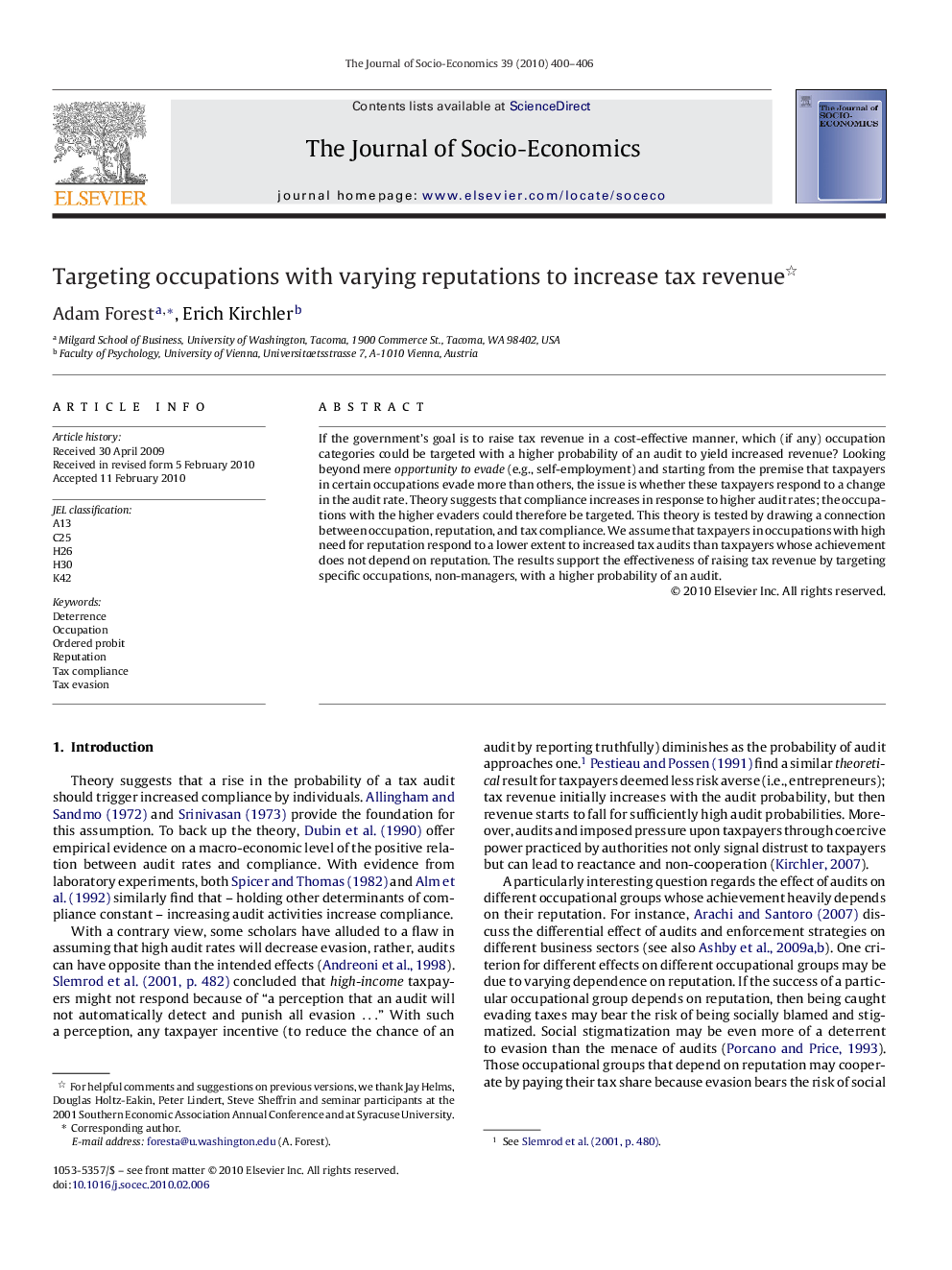| Article ID | Journal | Published Year | Pages | File Type |
|---|---|---|---|---|
| 970142 | The Journal of Socio-Economics | 2010 | 7 Pages |
If the government's goal is to raise tax revenue in a cost-effective manner, which (if any) occupation categories could be targeted with a higher probability of an audit to yield increased revenue? Looking beyond mere opportunity to evade (e.g., self-employment) and starting from the premise that taxpayers in certain occupations evade more than others, the issue is whether these taxpayers respond to a change in the audit rate. Theory suggests that compliance increases in response to higher audit rates; the occupations with the higher evaders could therefore be targeted. This theory is tested by drawing a connection between occupation, reputation, and tax compliance. We assume that taxpayers in occupations with high need for reputation respond to a lower extent to increased tax audits than taxpayers whose achievement does not depend on reputation. The results support the effectiveness of raising tax revenue by targeting specific occupations, non-managers, with a higher probability of an audit.
